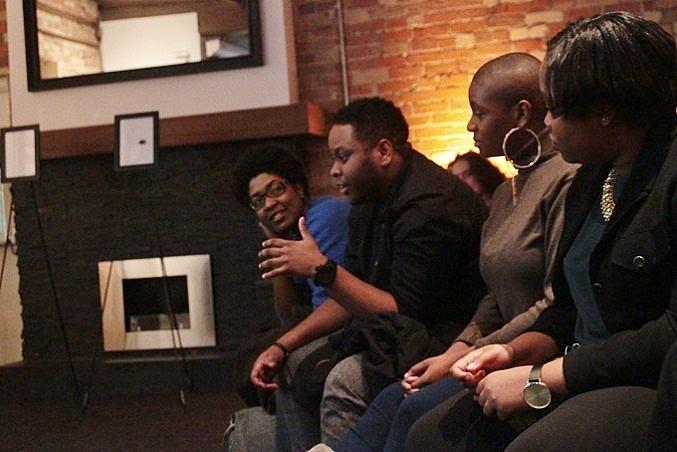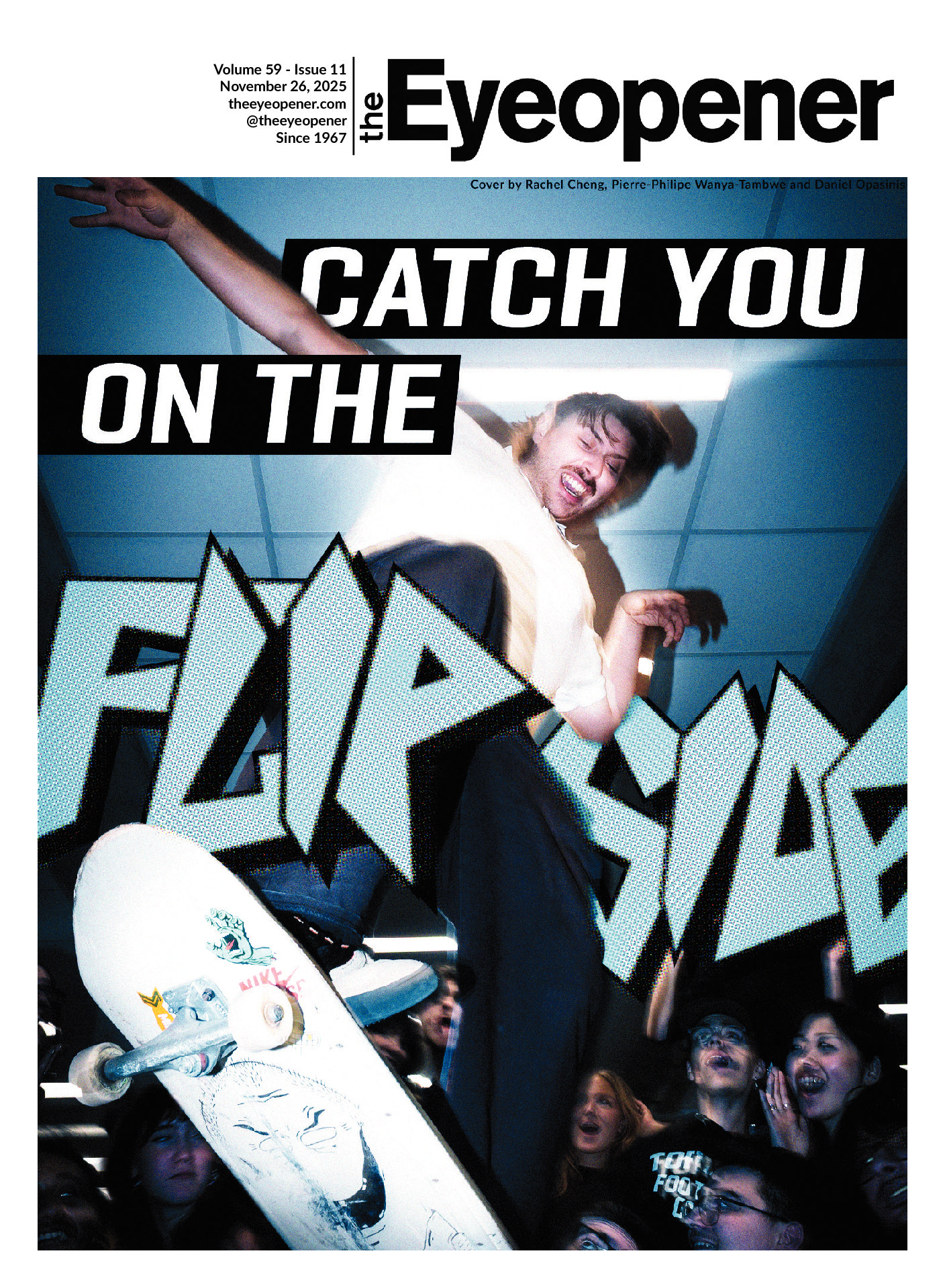By Bianca Bharti
The history of the queer, black community and the importance of archiving was discussed at the sixth annual Queering Black History Month event at Oakham Lounge on Thursday night.
Chrys Saget-Richard, a coordinator at the Racialised Students’ Collective, organized the event along with the Ryerson Students’ Union.
“Tonight … was basically a conversation around how we are able to record our own history, rather than having it told by people who are not queer or black or trans,” Saget-Richard said.
Speakers at the event included Abdi Osman, Beverly Bain and Lena Peters, all active members in the Toronto queer, black community.
Osman, a photographer and documenter who focuses on the intersect of black masculinity and Muslim queer identities, showed the last instalment of his three-part series called Black Queer Affection. The series is about black, queer friendship in Toronto.
Bain, a professor at University of Toronto Mississauga who researches and teaches diasporic sexualities and black queer diasporic studies, shared the story of two women who were key figures in the Toronto black, queer scene.
“As black queers, we are [invisible] within the larger context of the black community,” Bain said. “But with black, queer feminists, we’re even further marginalized and [invisible].”
She shared the life of Sherona Hall who was heavily involved in gay, women, lesbian, transgender, bisexual and HIV and AIDS advocate groups. She also shared the life of Makeda Silvera, who started Sister Vision Press, a publication that gives voice to Canadian women of colour throughout the ‘80s and ‘90s.
Peters spoke about the Black Lives Matter movement and how the presence of young, black, queers is becoming more prominent.
“I want to talk about what it specifically means to be young, queer, and black, in a time where queer, black folks are media-makers and shaping the ways we communicate,” Peters said.
She said that queer, black youth are revolutionizing the way people discuss social justice.
“When we look at Twitter and Tumblr, so much of our language around social justice is being developed on the ground by queer youth of colour.”
Peters talked a lot about Beyoncé’s song Formation, and how the inclusion of Messy Mya showed the progress of efforts done on the ground by queer youth of colour.
“Beyoncé didn’t tell us to get into formation, we told Beyoncé to get into formation,” Peters said.
The night ended with a performance by House of Monroe, a vogue dance group that hosts events and performances in Toronto’s LGBTQ+ scene.
“Toronto has a particular history that not many people know about. So we need to share, we need to have these conversations,” Saget-Richards said.
“That’s how we form community.”











Leave a Reply